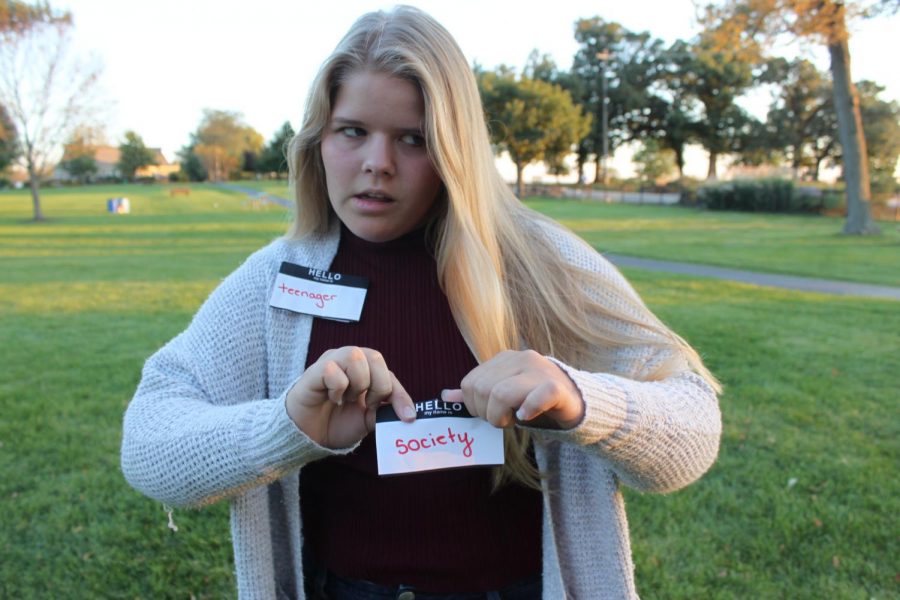Teenagers VS Society: the way society judges based on first looks
Photo by Photo by Parul Pari
Lexy Selof, junior, has often been faced with being treated differently in society based on first glance due to her age. Selof believes that once people get to know her they realize her maturity and treat her the way she deserves to be treated.
Baggy pants, headphones in, and an unexpressive look on a person’s face. How would your perception of this person change if they were 15 years old versus 35 years old?
Nearly 8 in 10 students in grades 5 through 12 say they want to be their own boss, 45% say they plan to start their own business, and 42% say they will invent something that changes the world, according to gallup.com. Yet even with so many aspirations, teenagers feel as if they are being treated differently in society based solely on their age rather than their potential.
Because of the stigmas surrounding teenagers, Annabelle Harrison, sophomore, believes that it is hard to be a “kid in the real world”.
“Especially teenagers are treated very differently than adults or younger kids because we have this stigma about us that we are rude or emotional and we don’t really know what’s going on [which leads us to] jump to conclusions,” Harrison said. “I think that’s why people don’t take us as seriously because we are young and we are in that phase where there’s a lot going on.”
Harrison has had first hand experiences in her job last summer, at a country club, with unequal treatment in her job.
“ I have worked at a country club for the past two summers and I think since I was so much younger than everyone there, I was treated as though I was dumb and I really didn’t know what I was talking about when I was trying to help people or do my job for them. Because I am so young, and because I’m a girl, and because I’m a teenager, they treated me kind of harshly and it seemed that they were making fun of me,” Harrison said.
At another country club, Amaan Sameer, junior, had similar experiences with adults viewing him as inexperienced at his job.
“When I was 13, I caddied at a place called Biltmore. A lot of the times when you recommend the golfers on what to do, they do not take you as seriously because they think you are just some kid who doesn’t know much,” Sameer said.
Sameer has seen parallels between societal perceptions based on his age in the business world due to his business on the side.
“In a business aspect, kids are always looked down upon and perceived as not knowing what they are doing. [On the contrary] there are a lot of kids who are young but have that business mindset and are very good at handling money,” Sameer said. “I resell shoes and clothes and a lot of the times, the younger generations will know what the market wants to buy because they themselves are interested in it. A lot of the time I feel that the older people are in it for the money [rather than the passion]. I think that younger kids have a better eye for products that are gonna do well in the market.”
Once older generations realizes that teenager perspectives should be viewed as equal to adults, Lexy Selof, junior, says she is treated the way in which she deserves despite age.
“When I have a conversation with people who are older than me, at first they don’t necessarily take my opinions and considerations,” Selof said. “[Once] I actually start talking to them and they see that I am mature enough and I have enough knowledge on what I am talking about so they treat the way I deserve.”
Selof and Sameer agree that maturity is dependent on each individual , therefore teenagers should not be judged collectively based on age.
“Everyone is at a different level of maturity and someone who is a freshman can be very mature but someone who is a senior can be very immature,” Sameer said. “It all depends on who they grew up with, or how they grew up, and what they are taught.”

After being in the journalism program for three years, Parul will be starting this year as a senior! Outside of the journalism lab, you can find her playing...

